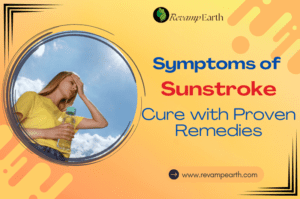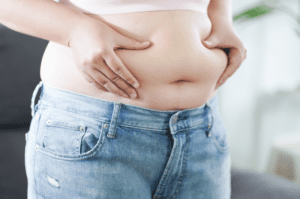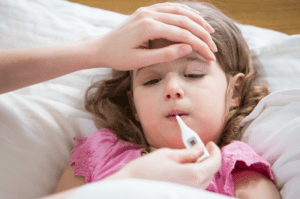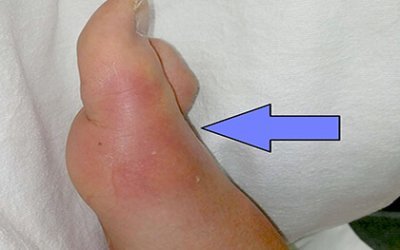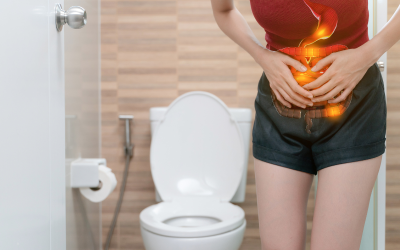Pimple-Free Secrets: Home Treatments For Smooth Skin

Pimples, those pesky little bumps that seem to pop up at the most inconvenient times, can be a source of frustration and embarrassment for many. From hormonal changes to poor skincare habits and dietary factors, there are various causes behind the development of pimples. However, the good news is that there are plenty of effective home remedies, prevention techniques, and herbal solutions available to combat them. In this comprehensive guide, we’ll explore the causes of pimples, practical prevention tips, and the power of natural herbs in achieving clear, blemish-free skin.
Understanding Pimples: Causes and Triggers
Pimples, also known as acne, occur when hair follicles become clogged with oil and dead skin cells, leading to inflammation and the formation of small red bumps. Hormonal changes, particularly during puberty, menstruation, and pregnancy, can trigger increased oil production, making individuals more prone to breakouts. Additionally, factors such as genetics, stress, poor skincare habits, and dietary choices can exacerbate the development of pimples.
Prevention Techniques for Clear and Pimple free Skin
Maintain a Consistent Skincare Routine: Cleansing your skin twice a day, using non-comedogenic skincare products, and avoiding harsh scrubbing can help prevent the buildup of oil and dead skin cells that contribute to pimples.
Stay Hydrated: Drinking an adequate amount of water helps keep the skin hydrated and promotes detoxification, reducing the risk of clogged pores and breakouts.
Eat a Balanced Diet: Incorporating plenty of fruits, vegetables, lean proteins, and whole grains into your diet can help support healthy skin and reduce inflammation. Avoiding sugary, processed foods and excess dairy may also help prevent pimples.
Manage Stress: Chronic stress can exacerbate hormonal imbalances and increase oil production, leading to breakouts. Practice stress-reduction techniques such as mindfulness, meditation, and exercise to promote overall well-being and clear skin.
Effective Home Remedies for Pimples:
Tea Tree Oil: With its antimicrobial and anti-inflammatory properties, tea tree oil can help reduce acne lesions and prevent further breakouts. Simply dilute a few drops of tea tree oil with a carrier oil and apply it to affected areas using a cotton swab.
Honey and Cinnamon Mask: A mixture of honey and cinnamon can help soothe inflammation, kill acne-causing bacteria, and promote healing. Mix equal parts honey and cinnamon powder to form a paste, apply it to clean skin, and leave it on for 10-15 minutes before rinsing off with warm water.
Apple Cider Vinegar Toner: Apple cider vinegar contains acetic acid, which helps regulate the skin’s pH balance and reduce acne-causing bacteria so, Dilute apple cider vinegar with water in a 1:3 ratio, apply it to the skin using a cotton ball, and leave it on for a few minutes before rinsing off. It can help you get a pimple free healthy skin.
Aloe Vera Gel: Aloe vera has soothing and anti-inflammatory properties that can help reduce redness and inflammation associated with pimples. and you can apply fresh aloe vera gel directly to the affected areas and leave it on overnight for best results. Know the best aloe vera gel on Amazon
Cinnamon: A paste prepared with cinnamon powder and few drops of fresh lime juice can be applied over pimples and blackheads with beneficial results.
Coriander:A teaspoon of coriander juice, mixed with a pinch of turmeric powder, is an effective remedy for pimples/acne, blackheads, dry skin. and the mixture should be applied to the face after washing it thoroughly, every night before bed. Know more Coriander-based remedies.
Precaution: Dry coriander should be sparingly used by persons suffering from bronchial asthma and chronic bronchitis.
Harnessing the Power of Herbs for Pimple-Free Skin
Neem: Neem, also known as Indian lilac, has antibacterial and antifungal properties that can help reduce acne lesions and prevent bacterial growth on the skin. Apply neem oil or neem leaf paste to affected areas for relief from pimples.
Turmeric: Turmeric contains curcumin, a compound known for its anti-inflammatory and antioxidant properties. Mixing turmeric powder with water or honey to form a paste and applying it to pimples can help reduce inflammation and promote healing.
Calendula: Calendula, or marigold, has soothing and healing properties that can help calm inflamed skin and promote wound healing. Apply calendula oil or cream to pimples to reduce redness and irritation caused by pimples.
pimples can be a frustrating and stubborn skin condition, but with the right approach, they can be effectively managed and prevented. By understanding the causes of pimples, implementing practical home remedies, prevention techniques, and harnessing the power of natural herbs, you can achieve clear, blemish-free skin and regain your confidence. Remember to be patient and consistent with your skincare routine, as achieving clear skin is a gradual process that requires dedication and perseverance. With the tips and strategies outlined in this guide, you can say goodbye to pimples and hello to radiant, healthy skin.
Know more remedies for pimple/acne
References
- Anna Hwee Sing Heng & Fook Tim Chew(2020) Systematic review of the epidemiology of acne vulgaris. Scientific reports, Nature.com. View
- J Ayer and N Burrows (2006) Acne: more than skin deep. National Library of Medicine. View
- H.K.Bakhru (1992) Herbs That Heal: Natural Remedies for Good Health. Orient Paperbacks. Delhi, India.
- T.V.Sairam (1999) Home Remedies Vol-II: A Handbook of Herbal Cures for Common Ailments. Penguin Books India.
Dos
Do Cleanse Gently:
Cleanse your face twice daily with a mild, non-comedogenic cleanser to remove impurities without over-drying the skin.
Do Use Non-Comedogenic Products:
Choose skincare and makeup products labeled as non-comedogenic to prevent pore-clogging.
Do Moisturize:
Use a lightweight, oil-free moisturizer to keep the skin hydrated without adding excess oil.
Do Protect Your Skin:
Apply a broad-spectrum sunscreen with at least SPF 30 daily, even on cloudy days, to protect your skin from harmful UV rays.
Do Keep Your Hands Off:
Avoid touching your face unnecessarily to reduce the risk of transferring bacteria and irritating the skin.
Do Practice Stress Management:
Incorporate stress-reducing activities into your routine, such as meditation, yoga, or deep breathing exercises.
Do Maintain a Healthy Diet:
Eat a balanced diet rich in fruits, vegetables, whole grains, and lean proteins. Consider reducing intake of high glycemic index foods and dairy if they seem to impact your skin.
Do Stay Hydrated:
Drink an adequate amount of water daily to help maintain skin hydration.
Do Change Pillowcases Regularly:
Change your pillowcases and sheets regularly to prevent the accumulation of oil, dirt, and bacteria.
Do Seek Professional Advice:
Consult a dermatologist if your acne is persistent, severe, or if over-the-counter products are not providing relief.
Don’ts
Don’t Pick or Squeeze Pimples:
Avoid picking or squeezing pimples, as this can lead to scarring and worsen inflammation.
Don’t Overwash Your Face:
Resist the temptation to overwash your face, as excessive cleansing can strip the skin of its natural oils and potentially worsen acne.
Don’t Use Harsh Scrubs:
Avoid abrasive scrubs that can irritate the skin and exacerbate acne. Opt for gentle exfoliants instead.
Don’t Skip Sunscreen:
Don’t skip sunscreen, even on cloudy days. UV rays can worsen hyperpigmentation and inflammation.
Don’t Use Heavy, Oil-Based Products:
Avoid heavy, oil-based skincare products that may contribute to pore clogging. Opt for oil-free and non-comedogenic options.
Don’t Assume All Acne Products Are Universal:
Not all acne products work for everyone. If a product isn’t producing results or is causing irritation, consider trying alternatives or consulting with a dermatologist.
Don’t Use Dirty Makeup Brushes:
Regularly clean your makeup brushes to prevent the buildup of bacteria that can contribute to acne.
Don’t Use Hot Water on Your Face:
Avoid using hot water to wash your face, as it can strip away natural oils and exacerbate dryness.
Don’t Stress Unnecessarily:
While stress management is important, don’t stress excessively about your skin. Anxiety can potentially worsen acne, so focus on positive habits and self-care.
Send Us A Message
FAQs
- Pimples or acne occur due to a combination of factors, including excess oil production, clogged pores, bacteria, and inflammation. Hormonal changes, such as those during puberty, can also trigger acne. Additionally, factors like stress, diet, and certain medications may contribute to the development of acne.
- To prevent acne breakouts, maintain a regular skincare routine that includes gentle cleansing, moisturizing, and exfoliation. Avoid using harsh products that may irritate the skin. Keep your skin clean and avoid touching your face frequently. Eating a balanced diet, managing stress, and avoiding picking at or squeezing pimples can also help prevent breakouts.
- Yes, diet can play a role in acne. While research is still ongoing, certain foods may exacerbate acne in some individuals. Foods with a high glycemic index (such as sugary snacks and refined carbohydrates) and dairy products have been associated with an increased risk of acne. Eating a balanced diet rich in fruits, vegetables, and whole grains may help improve skin health.
- Safe home remedies for acne-prone skin include using diluted tea tree oil, aloe vera gel, and honey. Tea tree oil has antibacterial properties and can be applied in a diluted form to affected areas. Aloe vera gel is soothing and can help calm irritated skin. Honey can be used as a natural mask to help kill bacteria and reduce inflammation. Always start with a small patch test to check for any adverse reactions, and avoid remedies that may be too harsh for sensitive skin, such as undiluted lemon juice or apple cider vinegar.


